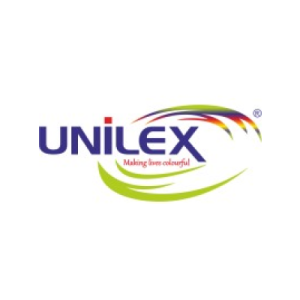
Unilex Colours and Chemicals IPO Closed
Already have an account? Apply now
Schedule of Unilex Colours and Chemicals
| Issue open date | 25 Sep 2024 |
| Issue close date | 27 Sep 2024 |
| UPI mandate deadline | 27 Sep 2024 (5 PM) |
| Allotment finalization | 30 Sep 2024 |
| Refund initiation | 01 Oct 2024 |
| Share credit | 01 Oct 2024 |
| Listing date | 03 Oct 2024 |
| Mandate end date | 12 Oct 2024 |
| Lock-in end date for anchor investors (50%) | 30 Oct 2024 |
| Lock-in end date for anchor investors (remaining) | 29 Dec 2024 |
Note: The schedule is tentative. The anchor lock-in period ends 30 days after the actual allotment date for 50% of the shares and 90 days after for the remaining portion. The allotment status can be checked on the registrar's website and the exchange website.
About Unilex Colours and Chemicals
Incorporated in 2001, Unilex Colours and Chemicals Limited is involved in the manufacturing of pigments and trading of chemicals and food colours, serving both domestic and international markets under the brand name “Unilex.” The company’s product range covers pigments such as Pigment Green, Pigment Violet, Ultramarine Blue, and Azo pigments, along with food colours like Tartrazine and Sunset Yellow. Its manufacturing facility in Palghar, Maharashtra, holds ISO 9001:2015 certification for quality management. The company exports to markets in countries including Vietnam, Brazil, Mexico, Russia, Turkey, and the Netherlands.
Financials of Unilex Colours and Chemicals
Issue size
| Funds Raised in the IPO | Amount |
| Overall | ₹31.32 crores |
| Fresh Issue | ₹31.32 crores |
| Offer for sale | – |
Utilisation of proceeds
| Purpose | INR crores (%) |
| Debt reduction | 10.00 (31.92%) |
| Working capital requirements | 15.00 (47.89%) |
| General corporate purposes | 6.32 (20.19%) |
Strengths
- Long-term relationships with customers across various industries and geographies help mitigate risks related to customer concentration.
- Offers a variety of products through both in-house manufacturing and market sourcing, providing flexibility and a wide selection.
- Serves multiple industries, including plastics, textiles, paints, coatings, and printing inks, which helps reduce dependency on any single industry.
Risks
- The company’s heavy reliance on the top five products means a drop in demand or competition could impact overall revenue.
- The company derives significant revenue from major customers without long-term agreements, which could hurt business if orders are reduced or canceled.
- The group company operating in the same industry without a non-compete agreement poses potential conflicts of interest that could affect the company’s competitiveness.
- A significant portion of revenue comes from exports, leaving the company vulnerable to international trade risks and market changes.
- Dependence on third-party suppliers without long-term contracts increases the risk of supply disruptions and cost fluctuations.